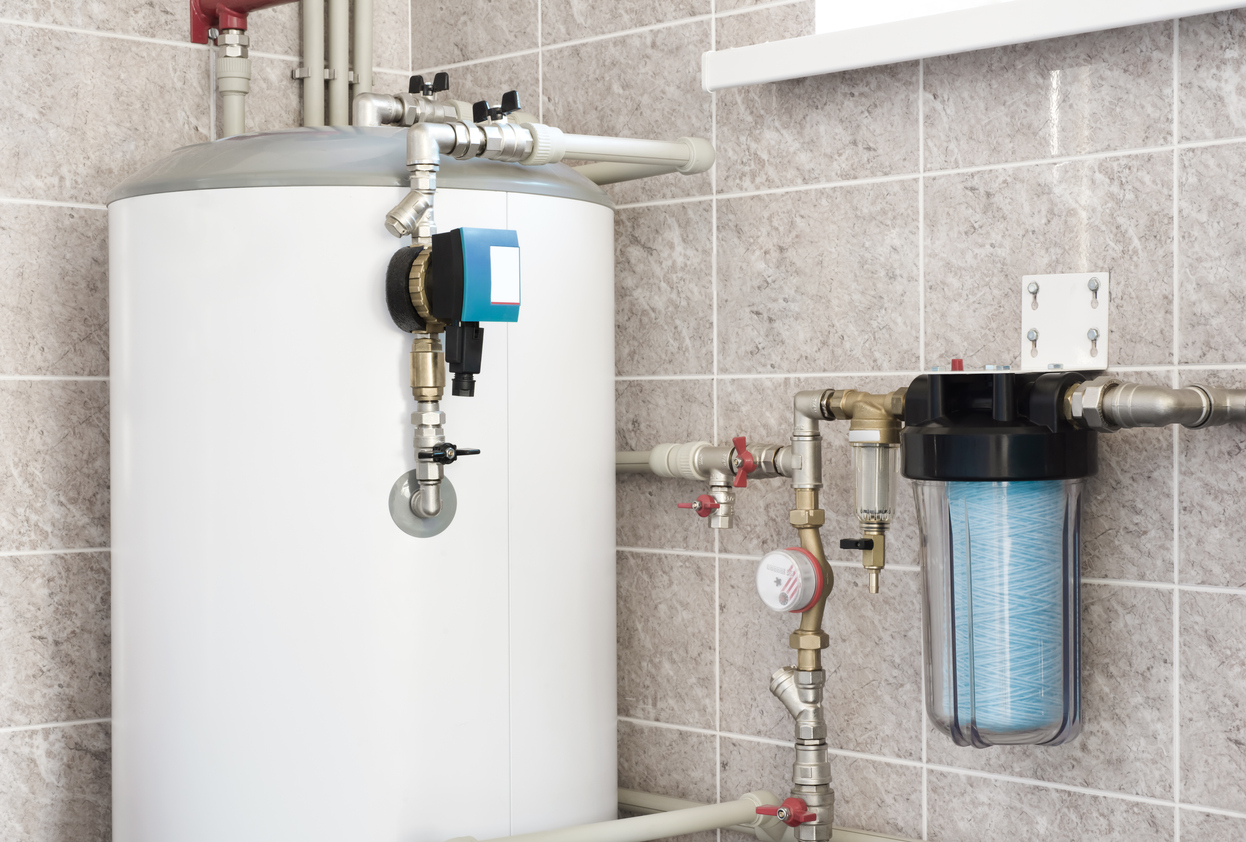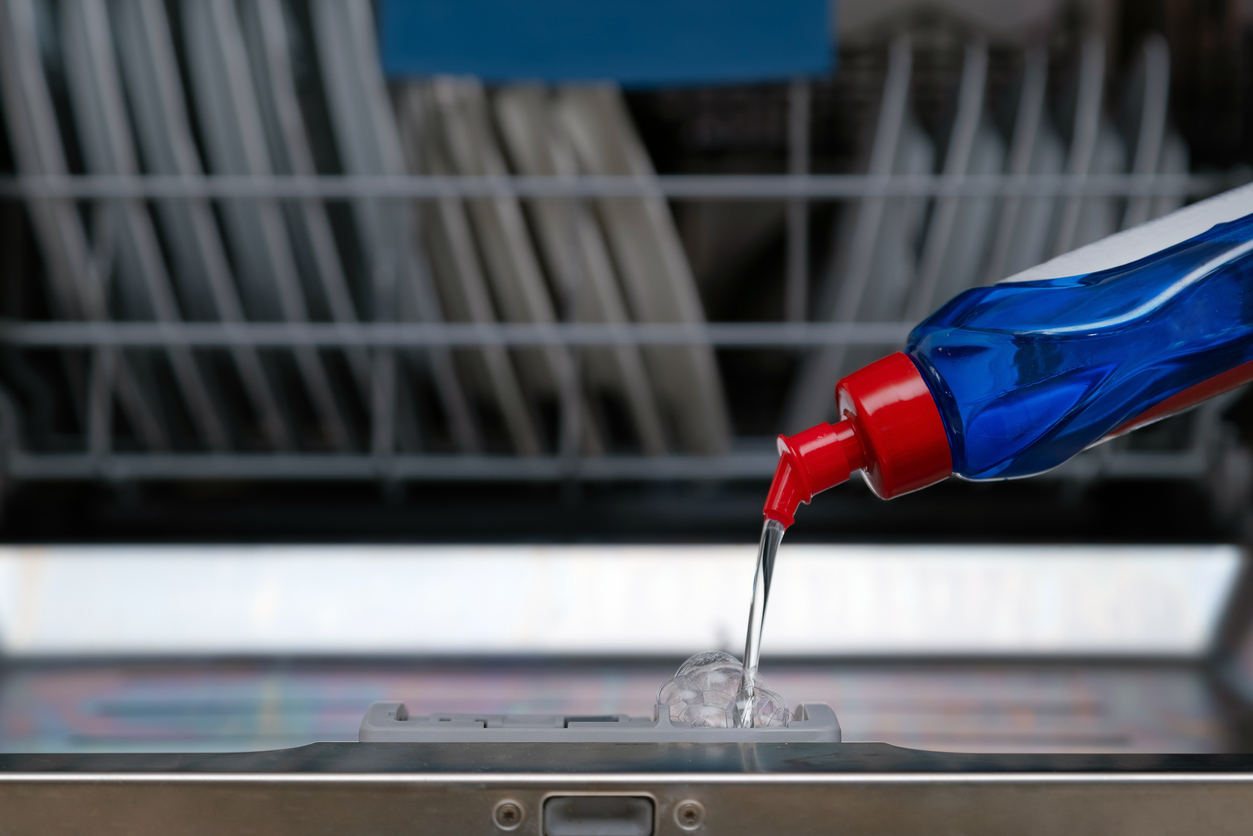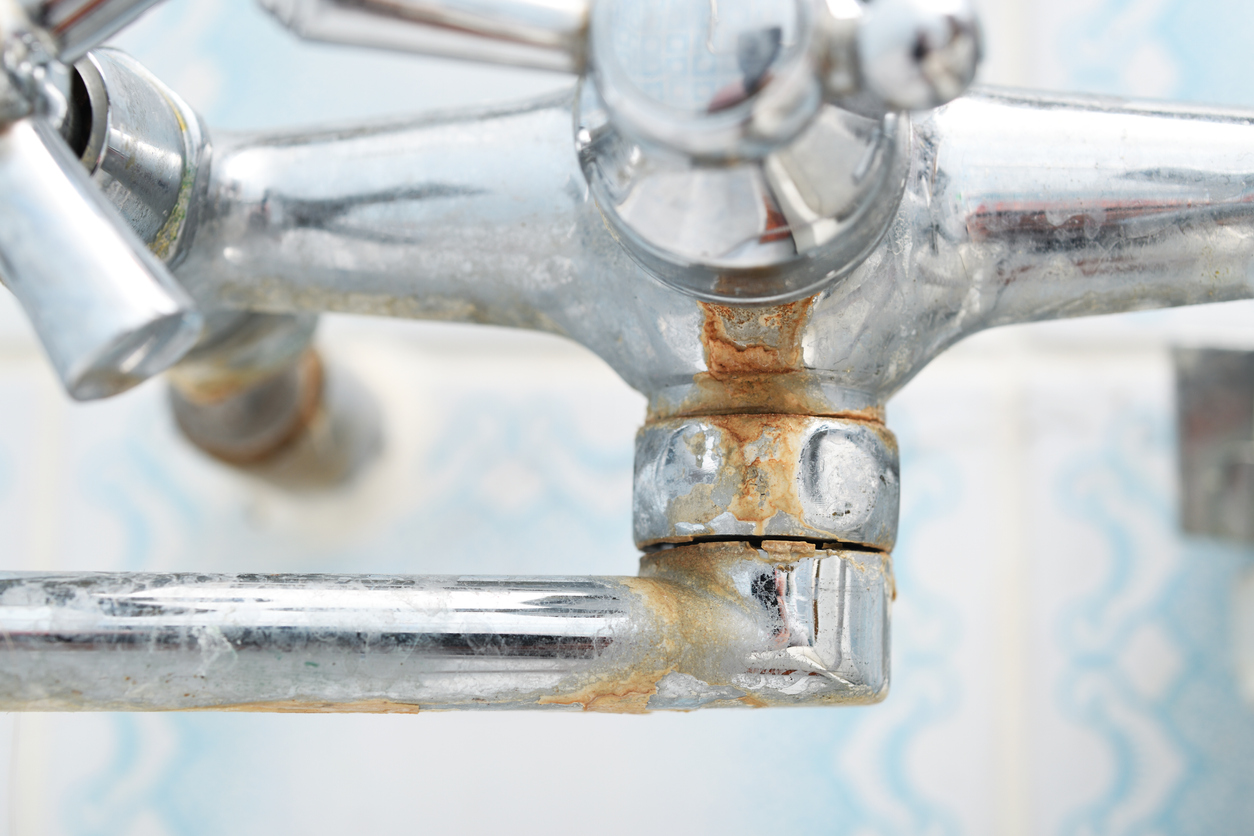In our last installment, we gave you the rundown on Arizona’s hard-water levels, including the fact that our state’s supply is compromised well beyond the minimum requirement for being classified as hard water.
To recap, while causes and levels can vary depending on geographical location, hard water can generally be described as high-mineral water with above-average concentrations of calcium and magnesium bicarbonates. These extra minerals are dissolved solids and can be further stratified as limestone, chalk, and gypsum deposits.
Off the bat, your home’s water supply might have extra mineral deposits if your water is tinged with color and tastes or smells “off.” Beyond these immediate tells, other indicators of hard water in your home also include scale buildup on your faucets and appliances, frequent plumbing issues, expensive water bills, dry skin and hair, and stomach illness. As you can probably deduce from these symptoms, untreated water can negatively impact your quality of life.
Thankfully, to help us cope with these symptoms, water softeners can be installed near your home’s water heater to filter out the extra salts and minerals, improving the efficiency of your appliances and protecting your family’s health.
There are two possibilities when it comes to water softeners: salt-based and salt-free water softener systems. Now, it should be noted that the salt-free option is not a water softener but, rather, a water conditioner that crystalizes the calcium and magnesium without removing them from the supply.
But perhaps the main distinction between both products is the fact that a salt-free water conditioner does not have chemical or salt-based additives, making it a suitable alternative for health-conscious homeowners.
With all of this in mind, here are other benefits associated with a whole-house, salt-free water softener:

1. It’s maintenance-free!
In the “salt vs. salt-free water softener” debate, the salt-free option is praised for demanding virtually zero maintenance. Once you’ve installed a salt-free system, the only routine care involved is changing the sediment filter once a year.
By contrast, salt-based water softeners require owners to fill the tank at least halfway with salt and keep the salt level at least three inches above the water level. Accordingly, industry experts recommend checking and resetting salt levels at least once per month. Using salt-based water softeners also means chronically breaking up salt bridges, which are salt layers that form in the brine tank—and prevent the water softener from working if they are not disintegrated or dissolved.

2. It saves you more money!
Unlike salt-based water softeners, salt-free water conditioners do not trap any materials, so there is no need for a cleaning cycle to remove any captured ions. As such, no electricity is needed to run this cycle and no water is wasted when purging the minerals from the resin bed. That being the case, a salt-free water softener system results in lower costs on your water and electricity bills.
In a way, salt-free water softeners also enable you to use less household soaps and detergent for your water-circulating appliances (e.g., dishwashers and washing machines). Since these water conditioners crystallize calcium, magnesium, and certain other metal cations in hard water, less soap is needed for the same wash actions, as soap is not wasted mopping up calcium ions.
It’s a no-brainer: Less soap equates to additional cost savings and less packaging waste.

3. It prevents scale buildup in your home!
Most compellingly, a salt-free water softener system extends the lifetime of plumbing by preventing scale buildup (or to use the scientific term, “calcification”) in pipes and fittings. As we previously explained, a salt-free water conditioner does not technically soften your water; it more so crystallizes the extra minerals so that they don’t adhere to the inside of your pipes—and thereby reduce scale buildup in your plumbing. For that reason, scale reduction is said to be the main benefit of a salt-free plumbing solution.
In line with our previous assertion that a salt-free water softening system saves you money, less scale on your pipes also means fewer (if any) calls to your plumber.

A Word About Water Filtration
While a salt-free water softener may protect your plumbing, it does not purge your supply of other harmful contaminants like lead and chlorine, so it’s important to also invest in a water filtration system for your home to reap the benefits of softer, uncontaminated water.
Our top-rated Envirotec Series is exclusive to Spencer’s, which is to say, you can trust us, and our promise is this: A high-quality water treatment system from Envirotec will outperform and outlast every discount option on the market. But most importantly, any Envirotec unit you purchase will provide years of quality water to your home and family.
Browse our catalog to shop Envirotec water treatment systems for your home!
Let Us Help You
Be sure to read our “Top 5 Benefits of a Water Softener” blog to learn more about this essential form of water treatment. If you have any questions, feel free to contact your friends in the business, Spencer’s TV & Appliance. We are proud to have served the Phoenix area for over 47 years. Call or visit any of our 10 locations today!


